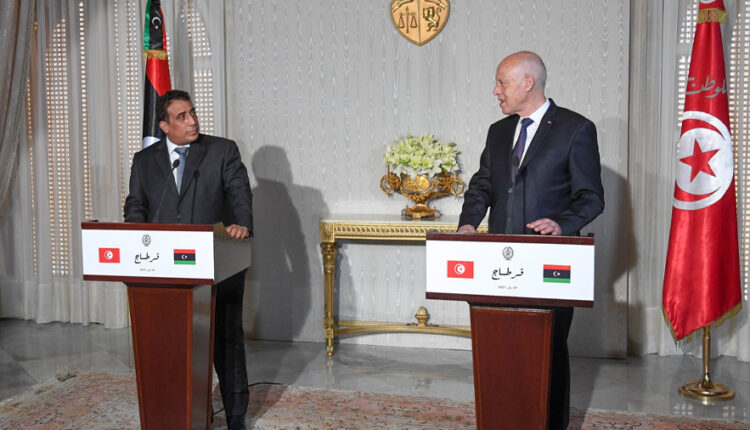Libya’s Presidential Council urges Tunisian parties to use the language of dialogue
Following Tunisian President's move to seize power and oust the government, Libya's Presidential Council calls on all Tunisian Parties to utilize communication to resolve all differences

According to a statement by a member of the Presidential Council, Musa Al Kuni, as cited by Council’s media office, they voiced worry about what was happening in Tunisia.
The Council is following the situation in Tunisia with considerable concern and calls on all parties to participate in discussion and settle disagreements via communication.
The Council member emphasized that what is occurring in neighbouring Tunisia is extremely significant to Libya since Tunisia is an important model and experience of democracy in the area.
Tunisian President Kais Saied made the decision to dismiss Prime Minister Hisham Al-Mashishi from office on Sunday evening.
Saied resolved to “freeze the work of the Parliament and waive the immunity of the members” at an emergency meeting of military and security chiefs.
He’d intended to seize executive authority with the assistance of a new Head of Government, whom he would designate himself.
The President of the Republic of Tunisia stated that these actions are required to defend the Constitution and the people’s interests.
The Tunisian President chose to serve as Attorney-General, citing the necessity to reveal all corruption cases and indicated that he would propose legislation in accordance with the Constitution.
Following a surge in Covid-19 cases and rising discontent over chronic political and economic corruption, the move came after a day of protests against the government and the largest party in parliament, the moderate Islamist Ennahda.
Tunisia’s 2011 revolution is often held up as the single triumph of the Arab Spring revolts across the region, although it has not resulted in economic or political stability in the last ten years.
The latest coronavirus outbreak has exacerbated long-standing public dissatisfaction. Last week, the health minister was fired as a result of a botched vaccination campaign.
How to submit an Op-Ed: Libyan Express accepts opinion articles on a wide range of topics. Submissions may be sent to oped@libyanexpress.com. Please include ‘Op-Ed’ in the subject line.
- Haftar to fly to the US with family, pretending it’s a Libyan official visit - September 13, 2021
- Haftar hires ex-Clinton aide, ex-Republican leader to lobby Washington for Libya elections’ run - September 09, 2021
- Al-Saadi Gaddafi, late dictator’s son, released from Libyan prison - September 06, 2021


